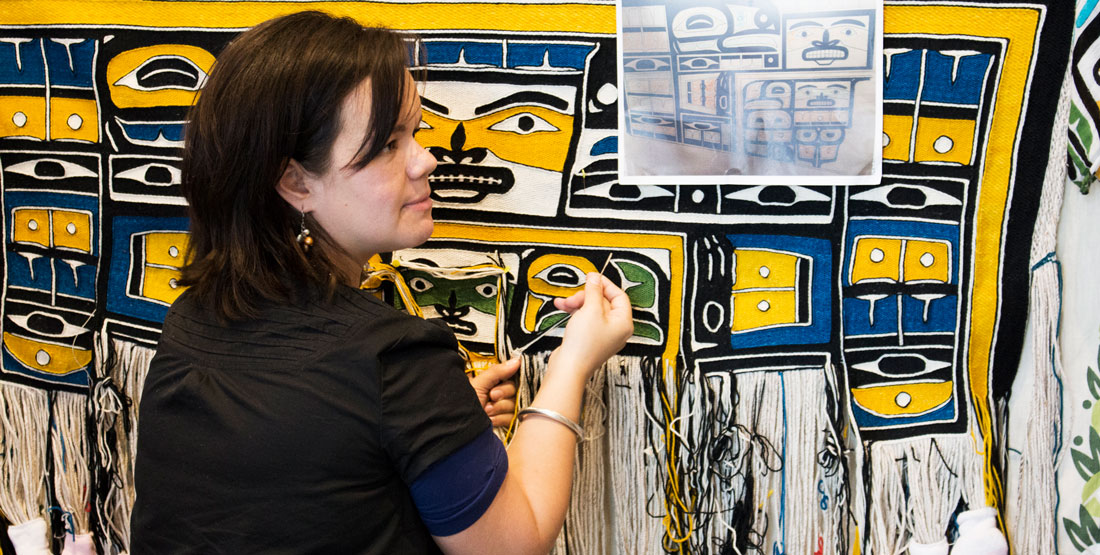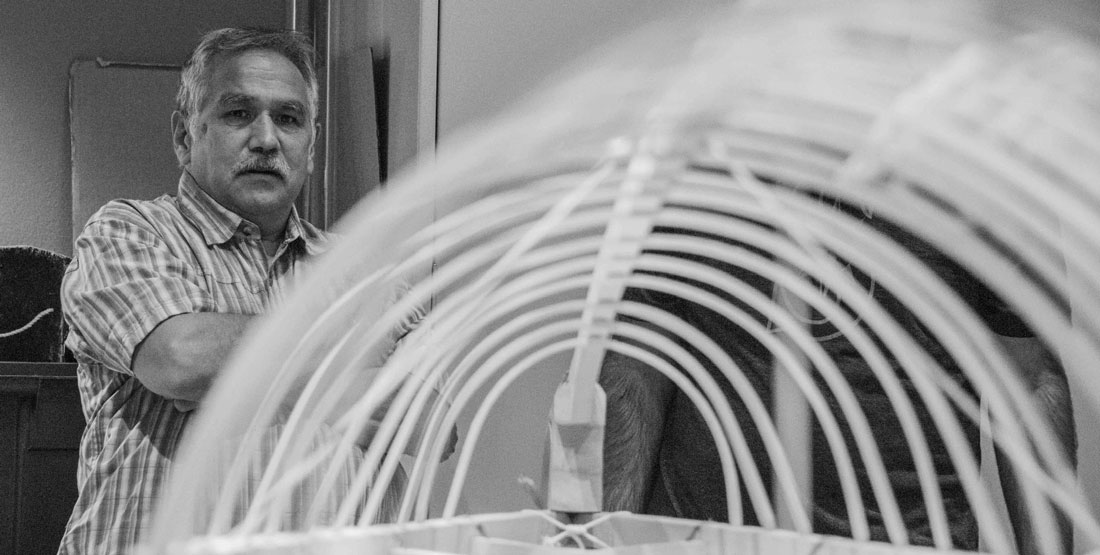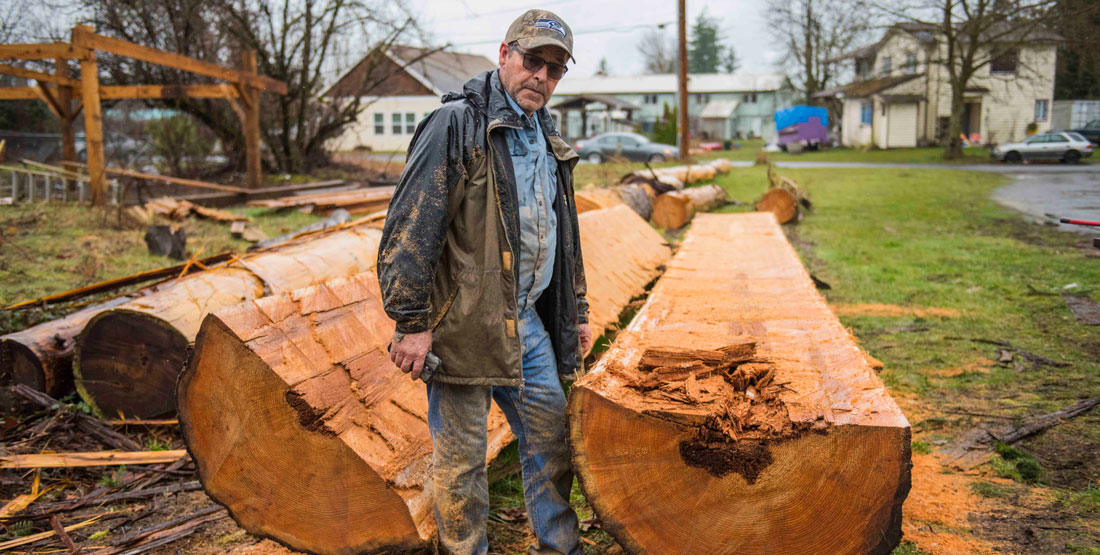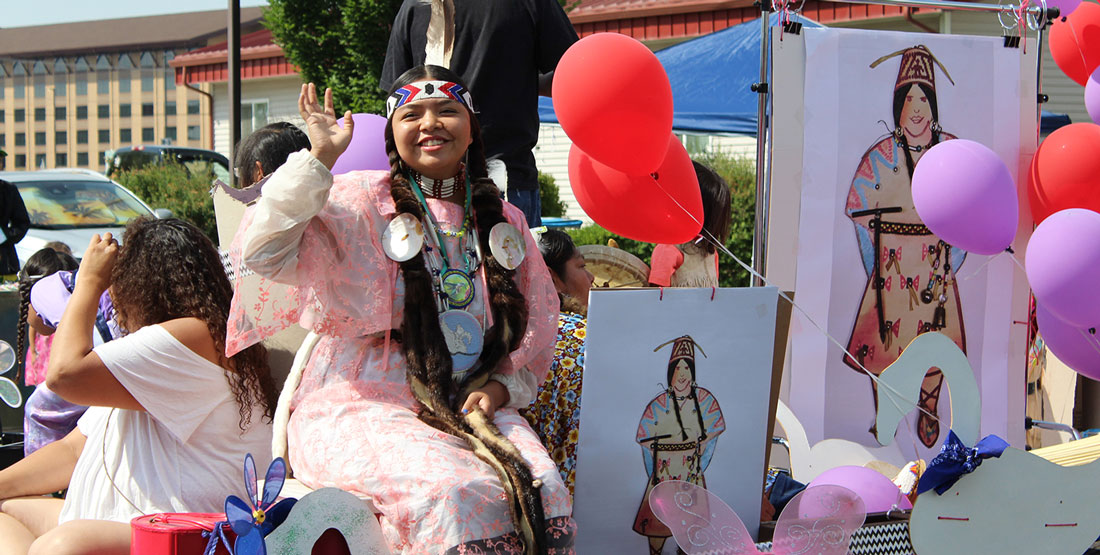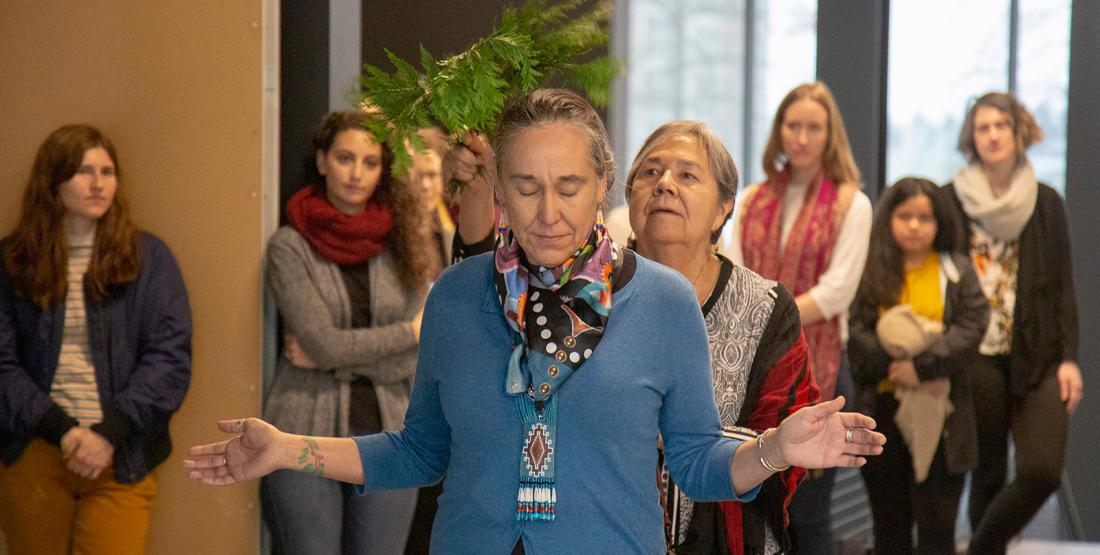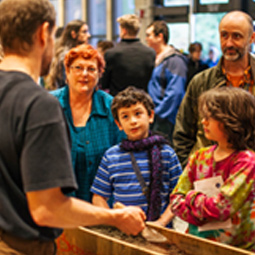Land Acknowledgment
The Burke Museum stands on the lands of the Coast Salish Peoples, whose ancestors have resided here since time immemorial. Many Indigenous peoples thrive in this place — alive and strong.
Native American Advisory Board
The Burke relies on its Native American Advisory Board (NAAB) for guidance on policy, programming and advocacy. Members of the NAAB represent Tribes from Alaska, British Columbia, Oregon, Washington and Idaho.
The NAAB is led by an Executive Committee who are elected by Tribal governments to guide the board.
Cultural Protocols and Ceremonies
The Native American Advisory Board and other Tribal leaders consult with the museum on cultural protocols and public and private ceremonies for the physical and spiritual well-being of the collections, staff, volunteers, and visitors.
Collections
The Burke holds significant collections of Northwest and Alaskan Native art, archaeology, and historical archives, which are actively used by Native artists, scholars, students, Tribal leaders, and community members. Access is available through personal visits and an online image database. In addition to cultural collections, the Burke has natural history collections including fossils, geology, and biology collections ranging from plants to mammals. Learn more about the Burke Museum Archaeology Collections and Contemporary Cultural Collections.
Collaborative Research and Cultural Exchanges
The Museum regularly collaborates with Tribal staff on research projects. The Burke also facilitates cultural exchange among Northwest Tribes and Indigenous peoples of other nations
Educational Programs
The museum serves learners with on-site and in-classroom cultural programs. These include the Storytellers early learner program wherein Native American storytelling is used to discuss community, teamwork, and accomplishing goals; the elementary-aged Living Traditions program, focusing on traditions that are passed down through many generations; traveling Burke Boxes highlighting the diverse cultures of Native peoples in Washington State; and customized programs for Tribal schools and communities.
Exhibits
The new Burke Museum’s exhibits involve hundreds of community curators representing diverse cultures from across the Pacific and strives to cover topics that are important to Tribes and other Indigenous communities from their perspectives and voices.
Bill Holm Center for the Study of Northwest Native Art
The Bill Holm Center promotes scholarly research on Northwest Coast Native art. It increases Native and public access to research resources and fosters understanding of Native art of the Pacific Northwest. The Center provides grants for visiting researchers, offsite artist workshops, graduate fellowships, and public programs, including exhibits, lectures, and online resources.
Tribal Museum and Cultural Center Development, Consultation and Training
The Burke Museum helps tribal museums and cultural centers, including the Duwamish Longhouse and Cultural Center, Hibulb Cultural Center and Nature Preserve, and the Suquamish Museum and Cultural Center. Activities include long-term loan of objects for display; conservation, preservation, collections management; and training for museum/center staff.
The Native American Graves Protection and Repatriation Act (NAGPRA)
The Burke has a history of commitment to the legal and ethical principles of NAGPRA and continues to develop new areas of collaboration. Activities include: visiting Tribes across the state; biannual updates on new acquisitions to every U.S. Tribe; and collaboration with Tribes on joint claims of culturally unidentifiable remains. Learn more about Repatriation and the Burke Museum.
Contact Us
Are you interested in collaborating with the Burke Museum?
Polly Olsen (Yakama)
Tribal Liaison
polly@uw.edu
206.543.5946

